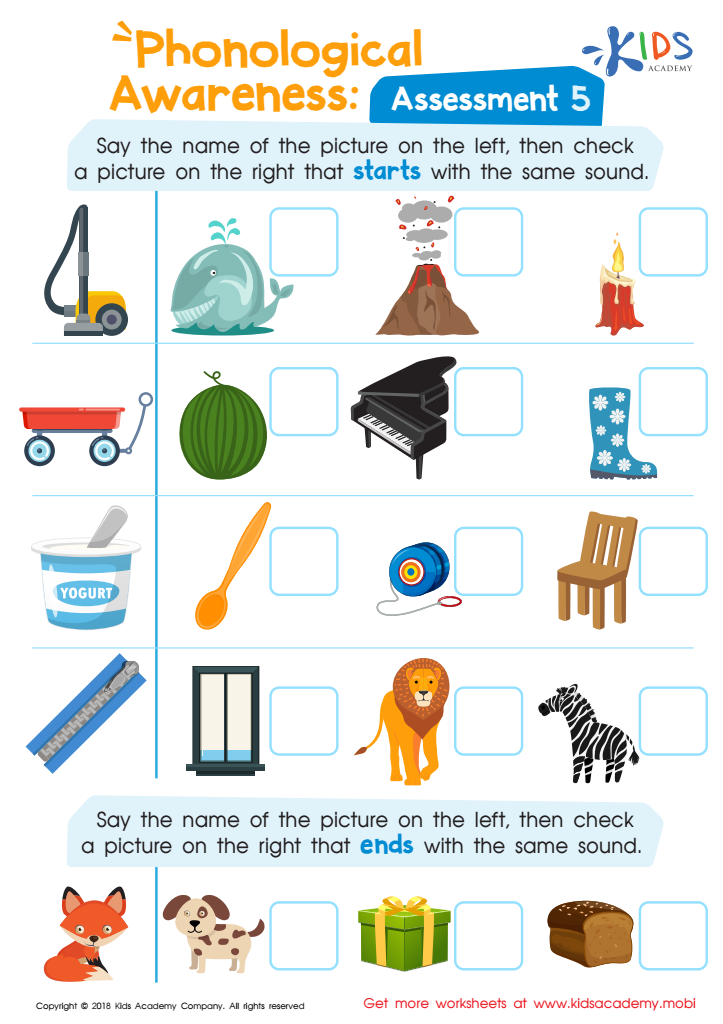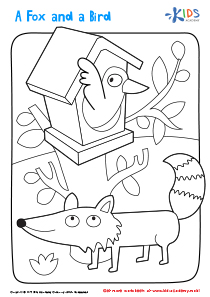Easy Elementary Phonics worksheets activities for Ages 3-4
1 filtered results
-
From - To


Phonological Awareness: Assessment 5 Worksheet
Easy Elementary Phonics worksheets activities are a cornerstone in building the foundational literacy skills that young learners need to succeed not only in their academic journey but in life. These activities are carefully designed to introduce and reinforce the relationship between letters and sounds, paving the way for fluent reading and clear articulation. Here’s why these activities are so incredibly useful:
1. Engaging Learning: Easy Elementary Phonics worksheets are designed with young learners in mind, incorporating vibrant illustrations and interactive tasks that keep children engaged. This engagement is crucial for turning the learning process into a fun journey rather than a mundane task.
2. Systematic Progression: These worksheets follow a systematic progression that aligns with children’s cognitive development stages. Starting from simple sound recognition to blending sounds into words, each activity is structured to build upon previous knowledge, fostering a sense of achievement and encouraging continual progress.
3. Individualized Pace: One of the beauties of Easy Elementary Phonics worksheets activities is that they allow students to learn at their own pace. In a classroom setting, children may feel pressured to keep up with their peers, but these worksheets provide the flexibility for practice and repetition as needed, catering to the individual learning speed of each child.
4. Foundation for Literacy: Phonics is the backbone of literacy. By mastering the sounds that letters and combinations of letters make, children are better equipped to decode new words, improving their reading fluency and comprehension. These worksheets lay the groundwork for these essential skills.
5. Confidence Building: As children successfully complete these worksheets, their confidence in reading and writing blooms. This confidence is key to fostering a positive relationship with learning, pushing them to explore more challenging materials with enthusiasm and less intimidation.
In conclusion, Easy Elementary Phonics worksheets activities are not just another task to complete; they are a bridge to literacy, communication skills, and a lifelong love for learning. By integrating these activities into the learning curriculum, educators and parents are investing in a foundation that will support children’s academic and personal growth far beyond their elementary years.
 Assign to the classroom
Assign to the classroom












